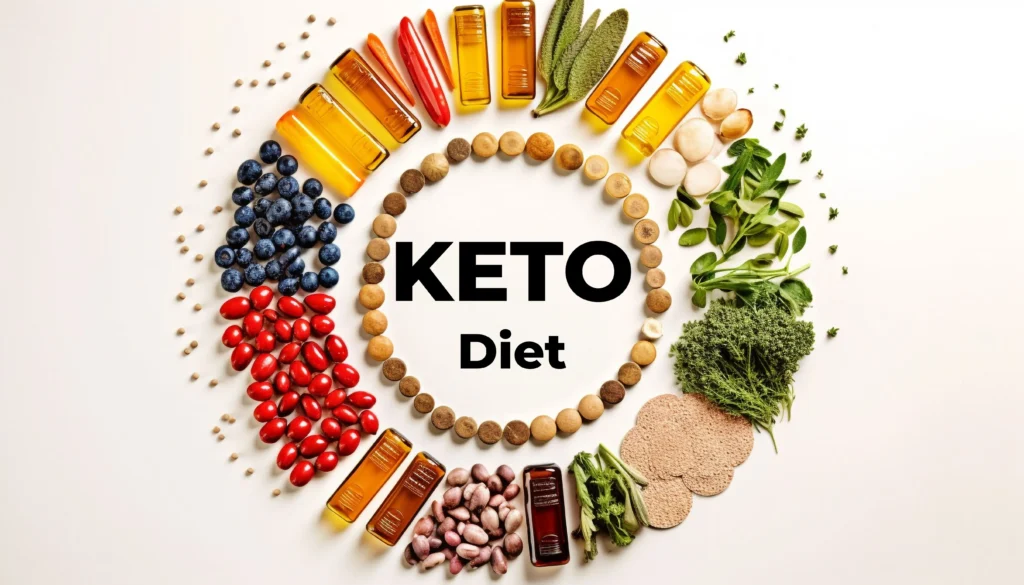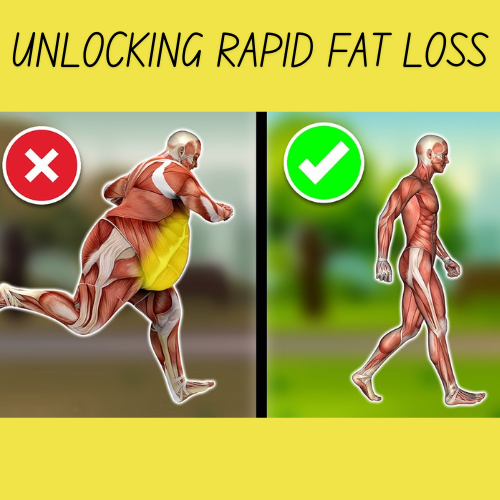- Eat Mindfully: When you eat mindfully, you’re fully present and engaged with your eating experience. This means paying attention to the taste, texture, and smell of your food. Mindful eating can be particularly beneficial for fat loss because it helps you tune in to your body’s hunger and fullness cues, preventing overeating and promoting a healthier relationship with food.
- Stay Hydrated: Adequate hydration is crucial for fat loss as it supports various metabolic processes in the body. Drinking enough water helps maintain proper hydration levels, which can boost metabolism and support fat-burning mechanisms. Additionally, staying hydrated can help prevent overeating by keeping hunger cues in check and promoting a sense of fullness.
- Portion Control: Portion control plays a significant role in fat loss by helping manage calorie intake. By controlling portion sizes, you can ensure that you’re consuming the right amount of calories for your body’s needs, which is essential for creating a calorie deficit necessary for fat loss. Practicing portion control involves being mindful of serving sizes and avoiding oversized portions, especially of high-calorie foods.
- Eat More Fiber: Fiber-rich foods are excellent choices for fat loss because they help keep you feeling full and satisfied for longer periods. By including more fiber in your diet through fruits, vegetables, whole grains, nuts, and seeds, you can curb cravings and reduce overall calorie intake. Additionally, fiber aids digestion and supports gut health, which are important factors in achieving and maintaining fat loss goals.
- Limit Processed Foods: Processed foods are often high in unhealthy fats, added sugars, and empty calories, making them detrimental to fat loss efforts. By limiting processed foods and opting for whole, nutrient-dense alternatives, you can reduce calorie intake and promote healthier eating habits. Whole foods provide essential nutrients and support satiety, making them a better choice for sustainable fat loss.
- Include Protein in Your Diet: Protein is crucial for fat loss as it helps preserve lean muscle mass while promoting fat burning. Including adequate protein in your diet supports satiety, reduces cravings, and helps maintain metabolic rate during weight loss. Lean protein sources such as poultry, fish, eggs, tofu, legumes, and low-fat dairy should be prioritized to support fat loss goals and overall health.
- Incorporate Healthy Fats: Healthy fats are an essential component of a balanced diet and can support fat loss when consumed in moderation. Sources of healthy fats, such as avocados, nuts, seeds, olive oil, and fatty fish, provide essential fatty acids and promote satiety, which can help control appetite and reduce overall calorie intake. Including healthy fats in your diet can also improve nutrient absorption and support various metabolic processes related to fat metabolism.
- Plan Your Meals: Meal planning is a valuable strategy for fat loss as it helps you make healthier choices and avoid impulsive eating behaviors. By planning your meals in advance, you can ensure that you have nutritious options readily available and reduce the likelihood of choosing high-calorie, unhealthy foods. Meal planning also allows you to portion control and balance macronutrients to support fat loss goals effectively.
- Eat Breakfast: Eating a nutritious breakfast is important for jumpstarting your metabolism and supporting fat loss efforts. A balanced breakfast that includes protein, fiber, and healthy fats can help stabilize blood sugar levels, control hunger, and prevent overeating later in the day. By fueling your body with a healthy breakfast, you set a positive tone for the rest of the day and support your body’s fat-burning processes.
- Get Moving: Physical activity is essential for fat loss as it helps create a calorie deficit and promotes metabolic efficiency. Engaging in regular exercise, including cardiovascular activities, strength training, and high-intensity interval training (HIIT), can increase energy expenditure, improve muscle tone, and accelerate fat loss. Aim to incorporate a variety of exercises into your routine to maximize fat-burning potential and enhance overall fitness and well-being.
- Strength Training: Incorporating strength training into your exercise routine is beneficial for fat loss because it helps build lean muscle mass and increase metabolic rate. Muscle tissue is more metabolically active than fat tissue, meaning it burns more calories at rest. By performing strength training exercises regularly, you can increase muscle mass, improve body composition, and enhance fat-burning capacity. Focus on compound movements that target multiple muscle groups simultaneously, such as squats, deadlifts, lunges, and push-ups, to maximize the effectiveness of your workouts for fat loss.
- Limit Sugary Drinks: Sugary drinks contribute to excess calorie intake and can hinder fat loss efforts when consumed in large quantities. These beverages are high in added sugars and provide little to no nutritional value, leading to spikes in blood sugar levels and increased fat storage. By limiting sugary drinks and opting for water, herbal tea, or other low-calorie alternatives, you can reduce overall calorie intake and support fat loss goals. Choosing beverages that are free of added sugars helps maintain stable energy levels and promotes hydration without sabotaging your progress.
- Read Food Labels: Understanding food labels is essential for making informed choices that support fat loss. By reading food labels, you can identify hidden sources of added sugars, unhealthy fats, and excessive calories in packaged foods. Pay attention to serving sizes, calorie counts, and the ingredient list to assess the nutritional quality of foods and make healthier selections. Look for products that are low in saturated and trans fats, contain minimal added sugars, and are rich in nutrients like fiber, vitamins, and minerals. Making smart choices based on food labels can help you stay on track with your fat loss goals and make sustainable changes to your diet.
- Cook at Home: Cooking at home allows you to have more control over the ingredients and cooking methods used in your meals, making it easier to support fat loss goals. When you cook your own meals, you can choose wholesome ingredients, control portion sizes, and minimize the use of added fats, sugars, and unhealthy additives. Home-cooked meals are often lower in calories and higher in nutrients compared to restaurant meals or pre-packaged convenience foods, making them a better choice for fat loss and overall health. Experiment with healthy recipes and cooking techniques to create delicious, nutritious meals that support your fat loss journey.
- Practice Moderation: Moderation is key to sustainable fat loss and long-term weight management. Allowing yourself to enjoy your favorite foods in moderation can help prevent feelings of deprivation and promote a balanced approach to eating. Rather than restricting certain foods entirely, focus on portion control and mindful eating practices to indulge in treats occasionally while still supporting your fat loss goals. Strive for a balanced diet that includes a variety of nutrient-dense foods while leaving room for occasional indulgences. By practicing moderation, you can enjoy a healthy relationship with food and maintain progress towards your fat loss goals without feeling restricted or deprived.
- Get Enough Sleep: Adequate sleep is essential for supporting fat loss and overall health. During sleep, your body undergoes essential processes related to metabolism, hormone regulation, and tissue repair. Lack of sleep can disrupt these processes and lead to imbalances in hunger hormones, increased appetite, cravings for high-calorie foods, and decreased energy expenditure. Aim to prioritize sleep hygiene practices and establish a consistent sleep schedule to ensure you get 7-9 hours of quality sleep each night. By prioritizing sleep, you can optimize fat-burning potential, support metabolic health, and enhance overall well-being.
- Manage Stress: Chronic stress can negatively impact fat loss efforts by increasing cortisol levels and promoting fat storage, particularly around the abdominal area. Finding healthy ways to manage stress is crucial for supporting fat loss and overall well-being. Incorporate stress-reducing practices into your daily routine, such as deep breathing exercises, meditation, yoga, mindfulness techniques, or spending time in nature. Engaging in regular physical activity can also help reduce stress levels and promote relaxation. By managing stress effectively, you can support a positive mindset, improve resilience, and create an environment conducive to fat loss success.
- Keep Healthy Snacks Handy: Having nutritious snacks readily available can help prevent impulsive eating and support fat loss goals. Choose snacks that are high in protein, fiber, and healthy fats to promote satiety and stabilize blood sugar levels between meals. Nutrient-dense options like fresh fruits, vegetables, nuts, seeds, Greek yogurt, and hummus with whole-grain crackers can satisfy cravings and provide sustained energy without derailing your fat loss progress. Portion out snacks in advance and keep them easily accessible to make healthy choices convenient and enjoyable throughout the day.
- Stay Consistent: Consistency is key to achieving and maintaining fat loss goals over the long term. Establishing consistent habits and routines around nutrition, exercise, sleep, and stress management creates a supportive environment for fat loss success. Focus on making small, sustainable changes to your lifestyle that you can maintain consistently over time rather than pursuing quick fixes or extreme measures. Celebrate progress and stay committed to your fat loss journey even during challenging times. By staying consistent and dedicated to your goals, you can achieve lasting results and enjoy improved health and well-being.
- Set Realistic Goals: Setting realistic and achievable goals is essential for staying motivated and focused on your fat loss journey. Define specific, measurable, and time-bound goals that align with your individual preferences, needs, and circumstances. Break larger goals down into smaller, more manageable steps or milestones that you can work towards gradually over time. Be realistic about what you can accomplish given your current lifestyle, resources, and commitments, and be flexible in adapting your goals as needed. Celebrate progress and milestones along the way, and use setbacks as opportunities for learning and growth. By setting realistic goals, you can stay motivated and committed to your fat loss journey while maintaining a positive mindset and sense of empowerment.
- Track Your Progress for Fat Loss: Monitoring your progress towards your fat loss goals helps you stay accountable and identify areas for improvement. Keep track of your food intake, exercise routine, measurements, and how you feel physically and emotionally throughout your fat loss journey. Use tools such as food journals, fitness apps, or wearable devices to monitor your progress and make adjustments as needed. Pay attention to trends and patterns in your behavior and results, and celebrate achievements along the way. Regularly reviewing your progress helps you stay motivated, stay on track with your fat loss goals, and make informed decisions to support your success.
- Stay Positive for Fat Loss: Maintaining a positive mindset is crucial for fat loss success and overall well-being. Focus on your strengths, progress, and achievements rather than dwelling on setbacks or challenges. Cultivate self-compassion, kindness, and resilience as you navigate your fat loss journey, and practice gratitude for your body and all that it can do. Surround yourself with supportive friends, family members, or communities who uplift and encourage you along the way. Embrace a growth mindset that views setbacks as opportunities for learning and growth, and believe in your ability to overcome obstacles and achieve your fat loss goals. By staying positive and optimistic, you can cultivate the motivation and determination needed to succeed on your fat loss journey.
- Find Support: Seeking support from others can enhance your fat loss journey by providing accountability, encouragement, and motivation. Share your goals, challenges, and successes with supportive friends, family members, or peers who understand and respect your journey. Join online communities, support groups, or fitness classes where you can connect with others who share similar goals and experiences. Consider working with a certified personal trainer, registered dietitian, or health coach who can provide personalized guidance and support to help you reach your fat loss goals. Remember that you don’t have to go through your fat loss journey alone, and that seeking support is a positive step towards achieving success.
- Be Patient: Fat loss is a gradual process that requires patience, persistence, and dedication. It’s important to set realistic expectations and understand that sustainable results take time to achieve. Focus on making consistent, healthy choices that support your fat loss goals, and avoid comparing your progress to others. Celebrate small victories and milestones along the way, and trust in your ability to reach your ultimate fat loss goals with time and effort. Embrace the journey as an opportunity for growth, learning, and self-discovery, and stay committed to your goals even when progress feels slow. By being patient and persistent, you can achieve lasting fat loss success and enjoy improved health and well-being.
- Seek Professional Help: If you’re struggling to achieve your fat loss goals on your own, don’t hesitate to seek professional help and guidance from qualified experts. Consider working with a registered dietitian, nutritionist, personal trainer, or healthcare provider who can provide personalized support and expertise tailored to your individual needs and goals. These professionals can help you develop a customized nutrition and exercise plan, address any underlying health issues or barriers to fat loss, and provide accountability, motivation, and encouragement throughout your journey. Remember that seeking professional help is a proactive step towards achieving your fat loss goals and improving your overall health and well-being.





